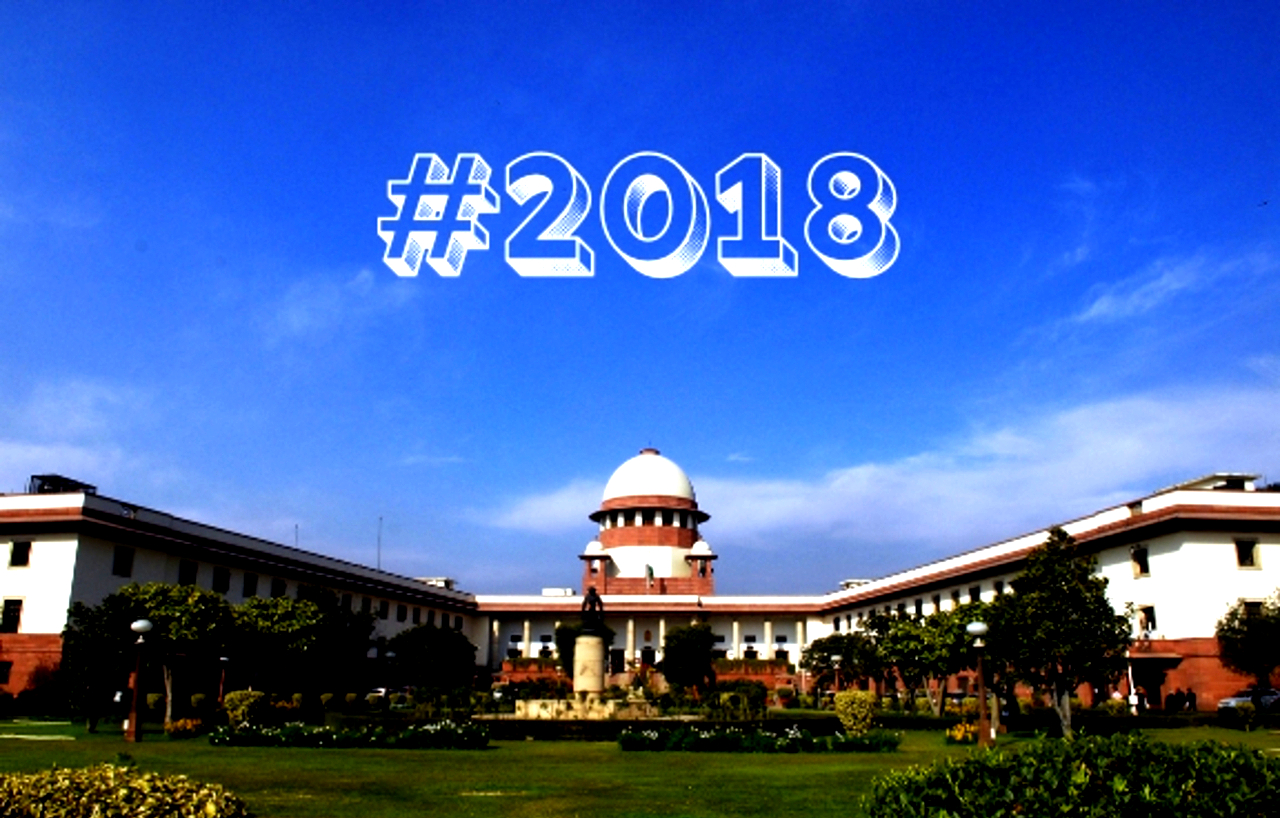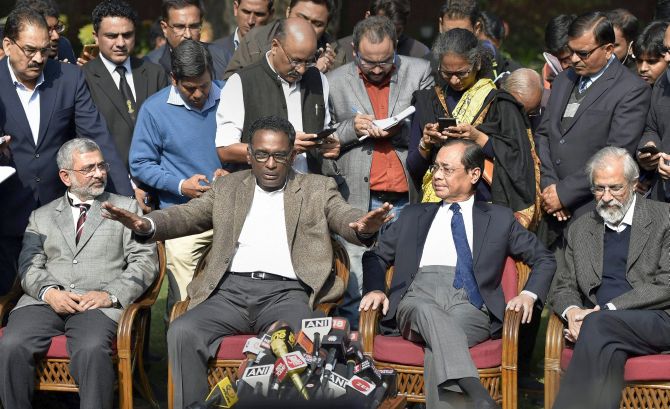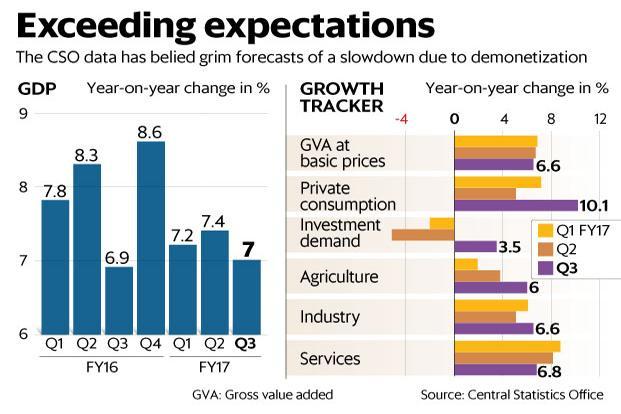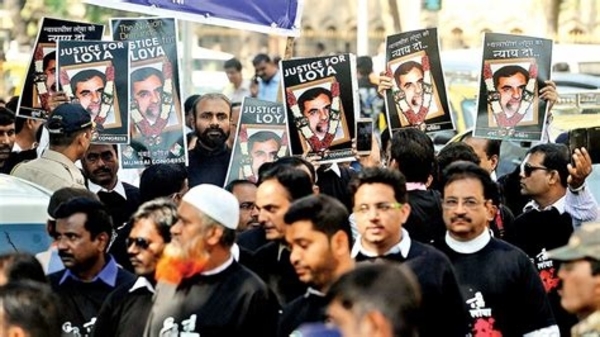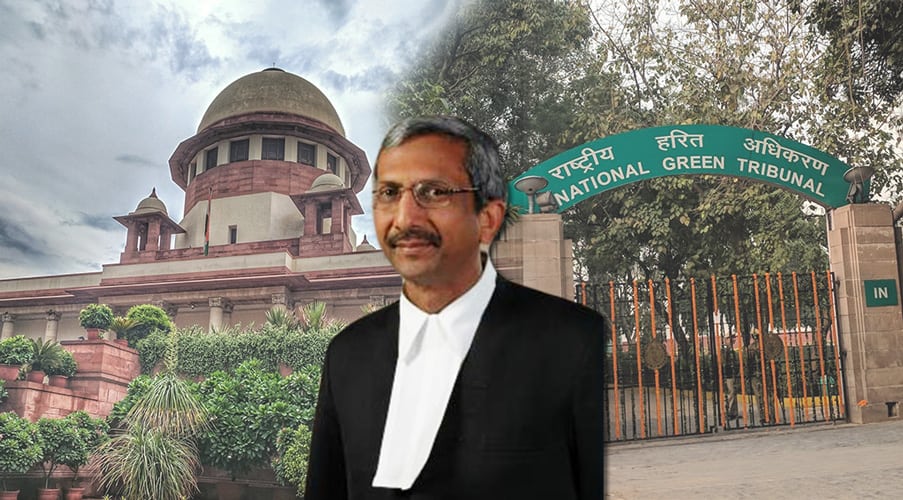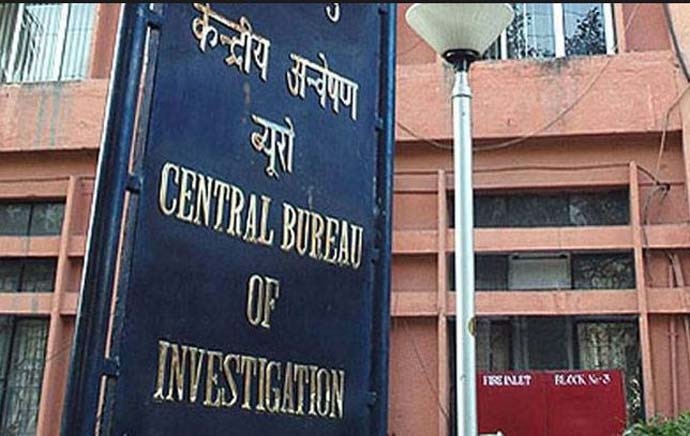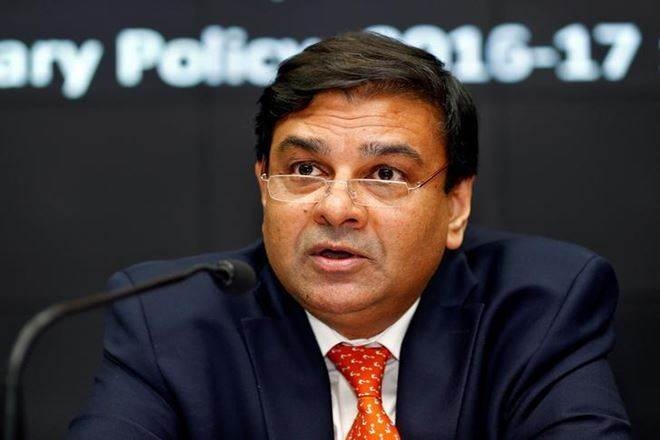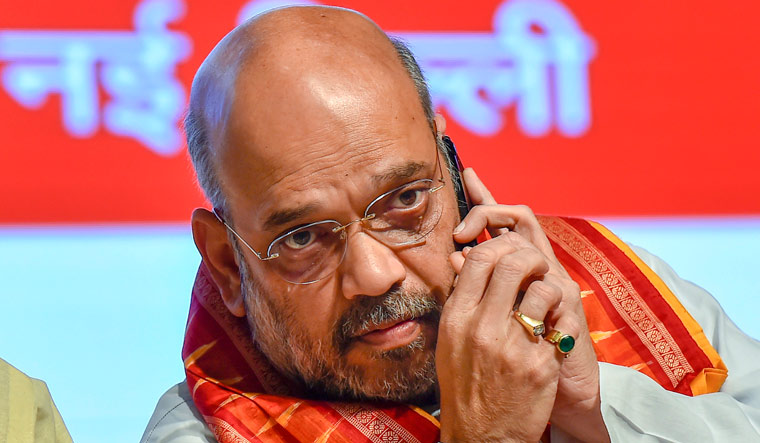GroundXero was launched on 14th April this year, on Dr. B.R.Ambedkar’s birth anniversary, and looking forward to the Bengali new year that begun the next day. As 2018 in the Gregorian calendar draws to a close, we present some brief snapshots of the year that has been. For this first post in a series, we share some highlights from the Attacks by the current ruling dispensation against the Power Structures/Institutions set up or promised by the Constitution. From the CBI, to RBI, Supreme Court to the Central Statistics Office, one Institution after the other came under unConstitutional pressures and subversions from the Central Government, in ways that many have compared to the Emergency days.
January: In an unprecedented move, four senior Supreme Court judges – Justices J Chelameswar, Ranjan Gogoi, Madan B Lokur and Kurian Joseph – held a press conference to place before the nation their concerns regarding the role of Chief Justice of India Dipak Misra. The judges questioned Misra over the manner in which the cases were assigned in the roster, indicating foul play.
March: The Central Statistics Office, under the guidance of NITI Aayog, re-based the past GDP series data, and the GDP growth rate under Modi’s administration now appears higher than even that under the boom years of UPA. The slicing and dicing required to recast the ‘back-series data’ left CSO open to questions. Without full access to all of CSO’s databases, it’s impossible to know exactly where the problem lies. Many pointed to some obvious inconsistencies, alleging that it was done to fulfill the wishes of the North Block. The entire exercise put the credibility of CSO and the reliability of its data in doubt, with the historic institution facing accusations of doctoring data.
March: In the backdrop of the Delhi High Court holding both BJP and Congress Guilty of accepting foreign funds from Vedanta, the Lok Sabha passed the Finance Bill within half an hour, including one amendment to the Foreign Contribution (Regulation) Act, retrospectively allowing exemptions to political parties from the scrutiny of foreign fundings.
July: SC dismisses a plea by the Bombay Lawyers Association, seeking a review and recall of its judgment that held Special CBI court Judge BH Loya had met with natural death. Judge Loya was allegedly murdered because of his role in the Sohrabuddin murder case that involves BJP Chief Amit Shah as one of the main accused.
July: Justice Adarsh Kumar Goel, who along with justice U.U. Lalit gave the verdict for dilution of SC/ST PoA Act, was appointed as the chairperson of the National Green Tribunal (NGT), immediately after retiring from the Supreme Court. Justice Goel has also previously served as General Secretary of the Hindu Nationalist lawyer’s wing Akhil Bhartiya Adivakta Parishad. As the head of the five-member NGT bench he passed the 43 page judgment dismissing the Tamil Nadu government’s arguments for closing Vedanta’s Sterlite Plant in Thoothukudi. The judgment ignored some of the main reasons for closure: lack of a legally mandatory green belt and chimney stack height violations.
August: A Hindutva outfit named Azad Sena burnt the Constitution of India in broad daylight, on Parliament Street in Delhi.
October: The year saw an unprecedented fight between CBI Director Alok Verma and Special Director Rakesh Asthana. After several accusations, allegations and investigations into alleged scams, the government divested Verma and Asthana of their power and functions pending CVC investigation. IPS Nageshwar Rao, with a tainted history of communal remarks, is currently looking after the duties and functions of the director. Both Verma and Asthana have filed pleas in Supreme Court. Asthana is known to be part of the “Gujarat cadre” close to PM Modi, many of whom have allegedly been planted in the CBI over the years after this Government came to power.
December: Reserve Bank of India Governor Urjit Patel resigns citing “personal reasons”. It was however apparent that Patel’s resignation was a fall-out of the recent unprecedented attacks on the top bank from the Central Government. The RBI and the government have been engaged in a bitter face-off for weeks over the central bank’s autonomy as the centre sought to relax RBI’s limits on credit lending and gain access to RBI reserves. The friction came to light when RBI deputy governor Viral Acharya warned that compromising the central bank’s independence could be “catastrophic”. This was followed by Jaitley publicly accusing the central bank of sleeping on the job and for its failure to check indiscriminate lending by public sector banks between 2008 and 2014.
As the year drew to a close, and the ruling powers grew increasingly desperate to maintain an iron grip on the nation and society by any means, we saw repeated open political attempts at undermining the judiciary – specifically on the issues of the Babri Masjid case, the Sabarimala verdict. The BJP and RSS openly led protests against the Supreme Court verdict on Sabarimala, and on the back of these agitations preventing women from entering the temple, BJP General Secretary Amit Shah directly said: “I want to tell … those who pronounce orders in court that you should issue orders that can be implemented…” There have been recent allegations of the Government having “lied to the Court” in the Rafale case. Earlier, there were allegations of the Government unconstitutionally interfering in the appointment and promotion of judges, including appointments to the Supreme Court.

